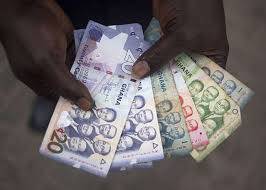As of December 21, 2024, the Ghanaian cedi (GHS) exhibited a slight appreciation against the US dollar (USD). According to data from Cedirates.com, a reputable Ghanaian platform for currency and fuel updates, the buying rate for the cedi stood at GHS14.71 per USD, while the selling rate was GHS15.15 per USD.
This appreciation represents an increase of 1 pesewa in the buying rate and 5 pesewas in the selling rate compared to the previous day. On the interbank market, the cedi was trading at GHS14.69 for purchasing and GHS14.71 for selling against the US dollar.
In comparison, XE.com, a well-known currency converter, reported that 1 USD was equivalent to GHS14.6942 as of December 22, 2024. Similarly, Wise.com indicated that 1 USD was equal to GHS14.5035.
The cedi's performance against other major currencies also showed notable figures. The British Pound Sterling was buying at an average of GHS18.14 and selling at GHS18.99. The Euro's buying and selling rates were GHS15.30 and GHS15.78, respectively. On the interbank market, the Pound Sterling was selling at GHS18.45, and the Euro at GHS15.29.
For individuals utilizing money transfer services, platforms like LemFi and Afriex offered competitive rates. Transfers from the US or the UK to Ghana were available at GHS14.65 and GHS14.70 per USD, respectively. For the British Pound, the buying and selling rates were GHS18.38 and GHS15.27, respectively. Regarding the Euro, Afriex was selling at GHS15.31, while Lemfi offered GHS15.21 per Euro.
It's important to note that exchange rates can vary between different platforms and financial institutions due to factors such as transaction fees, service charges, and real-time market fluctuations. For instance, Western Union's currency converter provides real-time exchange rates, which may differ from those offered by other services.
Additionally, for subscription services like Netflix, Spotify, or Apple Music, payments made through Visa and Mastercard were processed at a rate of GHS15.78 per USD.
The slight appreciation of the cedi against the US dollar and other major currencies could be attributed to various economic factors, including changes in foreign exchange reserves, government monetary policies, and fluctuations in global commodity prices. However, without specific data, it's challenging to pinpoint the exact reasons for this appreciation.
For individuals and businesses engaged in foreign exchange transactions, it's advisable to monitor multiple sources for the most current rates and consider the associated fees and charges that may apply. Platforms like XE.com and Wise.com offer real-time exchange rate information, which can be beneficial for making informed decisions.
In conclusion, as of December 21, 2024, the Ghanaian cedi has shown a modest appreciation against the US dollar and other major currencies. Staying informed through reliable sources and understanding the factors influencing exchange rates are essential for effective financial planning and transactions.



No comments yet
Be the first to share your thoughts!